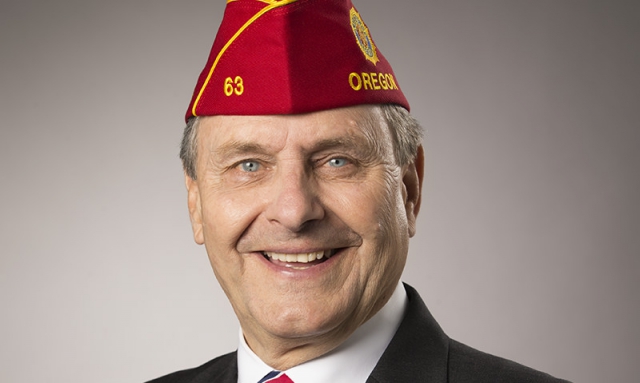
Legion programs help veterans, children
Baseball player and Navy veteran Yogi Berra once said, “When you come to a fork in a road, take it.” That’s the dilemma I faced when trying to select a fundraising project for my year as national commander of The American Legion. Our organization has so many outstanding programs. How do I choose just one?
In the end, I didn’t. I chose two, and I think you’ll agree with me that they’re quite worthy of our support: the Legion’s Temporary Financial Assistance (TFA) program, and training for service officers.
First, let’s talk about what TFA does. Since 1925, it has awarded more than $15 million in cash grants to veterans with minor children at home. For families short on options, these grants help keep children in a stable environment by meeting the immediate costs of food, shelter, utilities, clothing and medical care. Applicants should be eligible for American Legion membership, though it isn’t required. As the program’s name indicates, TFA is temporary relief meant to keep the family unit intact. Last year, the program assisted 650 families and 1,500 children.
When Army veteran Brent Wightman lost his job following multiple back surgeries for a service-connected injury, he nearly lost his home, too. A Legionnaire offered support through TFA. “If it hadn’t been for the Legion, I would have been trying to figure out how to clothe, house and feed my kids,” Wightman says. “The American Legion gave me a mission and a purpose again. It saved my life.”
Another vital Legion program is our unrivaled corps of accredited veterans service officers. Whether a veteran incurred an illness during military service or suffered major wounds in combat, he or she should be able to access the health care and benefits earned. But navigating the VA bureaucracy is not easy and often requires the help of someone who is experienced and trained. The American Legion’s nationwide network of nearly 3,000 service officers stands ready, willing and able to assist any veteran in filing for benefits, regardless of membership status or eligibility. Best of all, this service is offered at no charge.
Today, the Legion represents nearly 800,000 veterans seeking benefits. It is essential that our service officers have the latest and best training so they can represent veterans as well as they represented us. That means staying current on VA policies and state and federal laws.
Nearly 20 percent of post-9/11 veterans live with PTSD. Some came home with traumatic brain injury; others have suffered military sexual assault. Meanwhile, an estimated 20 veterans commit suicide every day. The work of Legion service officers is not just important – it saves lives.
To support either of these great programs – TFA and our service officer corps – go to www.legion.org, click on the Donate tab and select “Commander’s Charity Fund.” Or send a check to American Legion Charities (put “Commander’s Fund” on the memo line) and mail it to The American Legion, 5745 Lee Road, Indianapolis, IN 46216. The fund has 501(c)(3) status and all money raised goes directly to the programs.
For those who wonder what we’re doing every day to help veterans and their families, I can’t think of two better examples than these programs. Join me in keeping their work going.
